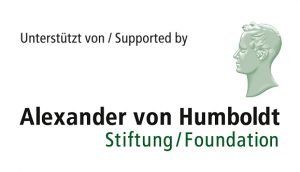In August 2021, I was awarded an Experienced Researcher Fellowship from the Alexander von Humboldt Foundation. The project runs at the Munich Center for Mathematical Philosophy, Ludwig-Maximillian Universität, Germany. It deals with methodological issues in interdisciplinary science.
Here is a short summary of the project:
Interdisciplinary research is one of the hallmarks of contemporary science. Several examples illustrate the influence of interdisciplinarity on today’s science:
- Interdisciplinary programs and research centres are proliferating worldwide. Outstanding cases are bodies such as the IPCC or the CERN, where hundreds of scientists with different disciplinary backgrounds, skillsets, and expertise work together for the solution of joint problems (Frodeman et al. 2017).
- Interdisciplinary science is often presented as one of the most promising ways to tackle some of the biggest challenges of our times, from climate change, to global health, to inequality (NSF 2020; Tuana 2013).
- Finally, several authors argue that a correlation exists between interdisciplinarity on the one hand, and impact and innovation on the other (Andersen 2013; Bourguignon 2020).
The increasing academic and societal demand for interdisciplinarity, however, cannot fully be met unless we address a whole range of methodological challenges that interdisciplinarity raises.
- One of the main obstacles to interdisciplinarity is that scientific practices tend to be strongly domain-specific (MacLeod 2018). Scientists are mostly trained within disciplinary boundaries that structure scientific work and guide problem-solving. Distinct domains even have different explanatory norms, i.e. different criteria for what count as adequate knowledge claims. Some domains strive for generality and tractability, others for specificity and accuracy. Since one of the main goals of science is to explain phenomena, if scientists disagree on something as fundamental as explanatory adequacy, it is likely that clashes will emerge with particular force in the context of interdisciplinary collaboration.
This project contributes resources from the philosophy of science to identify: 1) differences in explanatory norms across fields and how they affect interdisciplinary collaboration, and 2) how these differences should be taken into account in the assessment of interdisciplinary work.
